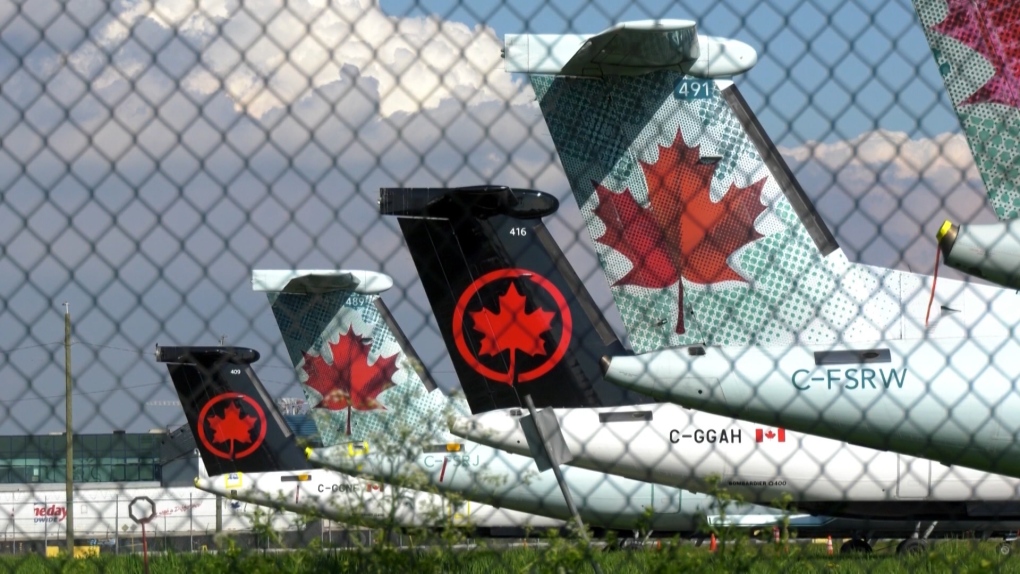B.C.’s small claims tribunal has awarded more than $1,000 to a couple whose arrival in Vancouver was delayed by more than four hours due to a cancelled flight from Montreal.
In two separate decisions published online Monday, Civil Resolution Tribunal vice chair Kate Campbell found in favour of Michael Zimmerman(opens in a new tab) and James Sullivan(opens in a new tab) in their bids to claim compensation from Air Canada under federal Air Passenger Protection Regulations (APPR).
The spouses were travelling from Fredricton, N.B., to Vancouver, and their journey was rerouted through Kelowna after a flight from Montreal to Vancouver was cancelled.
They arrived in Vancouver a little more than four hours after their scheduled arrival, a delay that large airlines must provide compensation for under the APPR if the delay “is within the carrier’s control and not required for safety purposes,” according to Campbell’s decisions.
Air Canada told the tribunal the cancelled flight was required for safety reasons, noting that the plane that was scheduled to make the flight needed unscheduled repairs to fix an “engine delamination fault,” and could not fly safely.
The airline claimed no alternative plane was available to make the trip.
The onus was on Zimmerman and Sullivan, as the parties bringing the complaints to the CRT, to prove their cases on the balance of probabilities. However, Campbell cited – and adopted the reasoning of – previous CRT and Canadian Transportation Agency decisions that found airlines arguing a delay was outside their control bear the burden of proving this assertion.
In this case, Campbell found Air Canada’s evidence unpersuasive.
“The statement from Air Canada employee GW says the flight was not cancelled until after employees had unsuccessfully tried to find another Airbus A330 aircraft,” Campbell’s decision in Zimmerman’s case reads.
“However, as Mr. Zimmerman argues, Air Canada has not explained why it only considered replacing (the plane) with another Airbus A330. GW’s statement says ‘no other viable alternative could have been carried out to render the applicant to his final destination on time.’ However, I find Air Canada has not proved this assertion.”
The tribunal member noted that Air Canada has a large fleet and the cancelled flight was to be operated out of a major airport in Canada’s second-largest city, factors that have been found in previous APPR cases to increase the expectation that an airline will be able to find a replacement plane.
Campbell further observed that there were other Airbus A330 planes – one in Montreal and one in Toronto – that were listed as “out of service” in records provided by Air Canada.
“Air Canada has not explained why these aircraft were out of service, and why they could not have been used to replace (the plane),” the Zimmerman decision reads.
“I find that Air Canada’s mere assertion that the aircraft were out of service is not enough to meet its burden of proving that the cancellation was unavoidable.”
In the two separate decisions, Campbell awarded each spouse $546.38, representing the $400 compensation the travellers were entitled to under the APPR, plus $21.38 in pre-judgment interest and $125 in CRT fees.
Source: bc.ctvnews.ca


